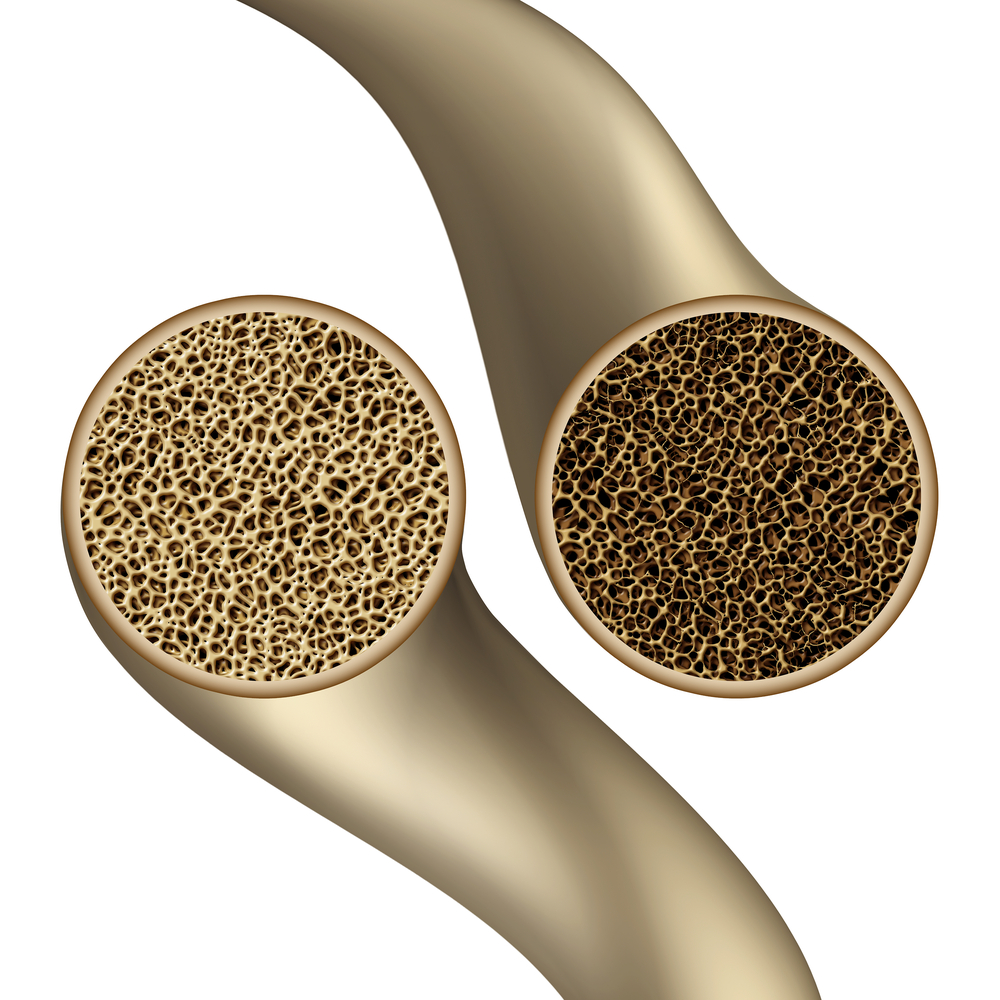The body contains over 200 bones that perform a variety of different roles, including providing structure, protection of your organs, anchor points for muscles, and calcium storage.
When you’re thinking about striving to improve your overall health, chances are, bones aren’t the first thing on your mind. Around age 30, your bone mass begins to rapidly decrease and that can cause your quality of life to decrease if you’re not actively taking care of your body.
According to experts, there are steps you can take today, no matter your age, to help slow the bone mass loss and keep you feeling well!
Osteopenia, a condition that typically affects people over the age of 50, occurs when your bones are weaker than they should be. Osteoporosis is an advanced condition that thins out your bones, making them more likely to break and lead to health problems. Osteoarthritis can occur when the protective cartilage at the ends of your bones wears down with time. This condition commonly affects the joints in your hands, knees, spine, and hip.
Here are a few things you can do to keep your body healthy through time.
Increase Calcium
One of the most critical minerals in your bones is calcium. Bone cells are constantly being broken down and replaced so it’s important to consume calcium in order to keep your bones strong. For adults between the age of 19 and 70, the (RDA) Recommended Dietary Allowance of calcium is 1,000 mg per day. If you’re a woman older than 50 or a male older than 70, this increases to 1,200 mg per day.
The best way to get calcium is through dairy products, vegetables such as broccoli and kale, salmon, soy products, and tofu. If you’re struggling to include enough calcium in your diet, speak with your doctor about dietary supplements.
Increase Vitamin D
Another important vitamin that your body uses for fuel is vitamin D. Calcium and vitamin D go hand-in-hand because your body uses vitamin D to absorb calcium. For all adults between the ages of 19 and 70, the RDA for vitamin D is 600 (IUs) international units per day. If you’re older than 70, this increases to 800 IUs per day.
The best way to include vitamin D into your diet is by eating salmon, whitefish, tuna, or trout. Also, cheese, eggs, mushrooms, milk, and certain cereals can be good sources of vitamin D. A great natural way to intake vitamin D is through sunlight.
According to studies done by the National Institutes of Health, children and adults with low vitamin D levels have lower bone density and are at a higher risk for bone loss. If you can’t find ways to get enough vitamin D into your diet, consult with your doctor for supplementary options.
Keep a Healthy Weight
Weight can play an important role in the health of your bones. Being too heavy or thin isn’t good for your bones and joints. Additionally, stomach and weight-loss surgeries can affect your body’s ability to absorb calcium. It’s important to consume a healthy diet of at least 1,200 calories per day to keep your bones healthy for a long time!
Having excess amounts of weight on your joints can be dangerous because your joints are built to sustain a certain amount of force and increasing that amount can be damaging in the long run. Depending on the activity you’re doing, your bones can feel immense amounts of pressure.
-
- The force on your knees at level ground is 1 1/2 times your body weight.
- if you’re going up and downstairs, that force is two to three times your body weight
- If you’re squatting to pick up an object, that force can be four to five times your body weight.
Maintaining a healthy weight will help your bones stay strong as you age. Excess stress on your joints can increase the likelihood of developing osteoarthritis.
Talk to Experts
Whether you’re experiencing pain in your bones or your joints, it never hurts to see a qualified orthopaedic physician. At NOC, we work to make sure we understand your needs and find a way to help you reach your goals. And, prior to making any changes to your dietary supplements, always check with your doctor!
Give us a call today and schedule an appointment with one of our highly experienced physicians. We’re here to help you get back to doing what you love!
402.436.2000

